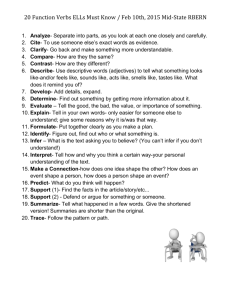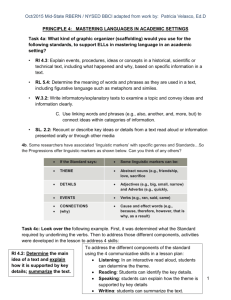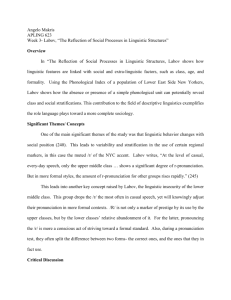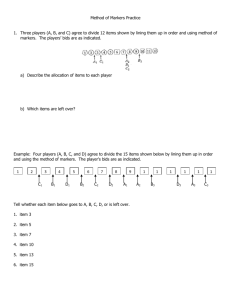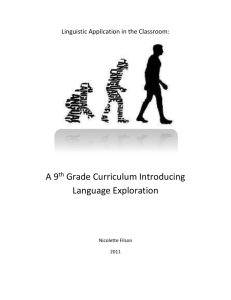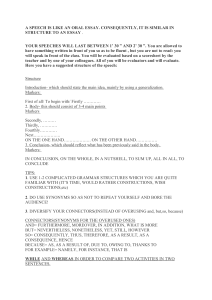20 Functions Verbs ELLs Must Know
advertisement
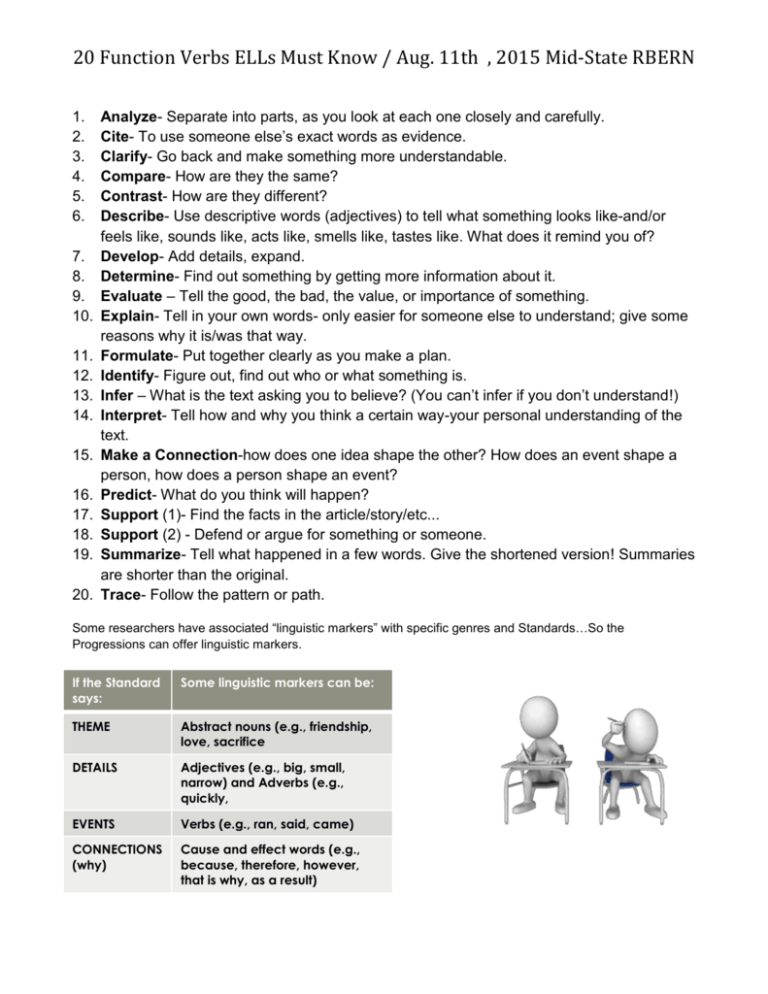
20 Function Verbs ELLs Must Know / Aug. 11th , 2015 Mid-State RBERN 1. 2. 3. 4. 5. 6. 7. 8. 9. 10. 11. 12. 13. 14. 15. 16. 17. 18. 19. 20. Analyze- Separate into parts, as you look at each one closely and carefully. Cite- To use someone else’s exact words as evidence. Clarify- Go back and make something more understandable. Compare- How are they the same? Contrast- How are they different? Describe- Use descriptive words (adjectives) to tell what something looks like-and/or feels like, sounds like, acts like, smells like, tastes like. What does it remind you of? Develop- Add details, expand. Determine- Find out something by getting more information about it. Evaluate – Tell the good, the bad, the value, or importance of something. Explain- Tell in your own words- only easier for someone else to understand; give some reasons why it is/was that way. Formulate- Put together clearly as you make a plan. Identify- Figure out, find out who or what something is. Infer – What is the text asking you to believe? (You can’t infer if you don’t understand!) Interpret- Tell how and why you think a certain way-your personal understanding of the text. Make a Connection-how does one idea shape the other? How does an event shape a person, how does a person shape an event? Predict- What do you think will happen? Support (1)- Find the facts in the article/story/etc... Support (2) - Defend or argue for something or someone. Summarize- Tell what happened in a few words. Give the shortened version! Summaries are shorter than the original. Trace- Follow the pattern or path. Some researchers have associated “linguistic markers” with specific genres and Standards…So the Progressions can offer linguistic markers. If the Standard says: Some linguistic markers can be: THEME Abstract nouns (e.g., friendship, love, sacrifice DETAILS Adjectives (e.g., big, small, narrow) and Adverbs (e.g., quickly, EVENTS Verbs (e.g., ran, said, came) CONNECTIONS (why) Cause and effect words (e.g., because, therefore, however, that is why, as a result)
